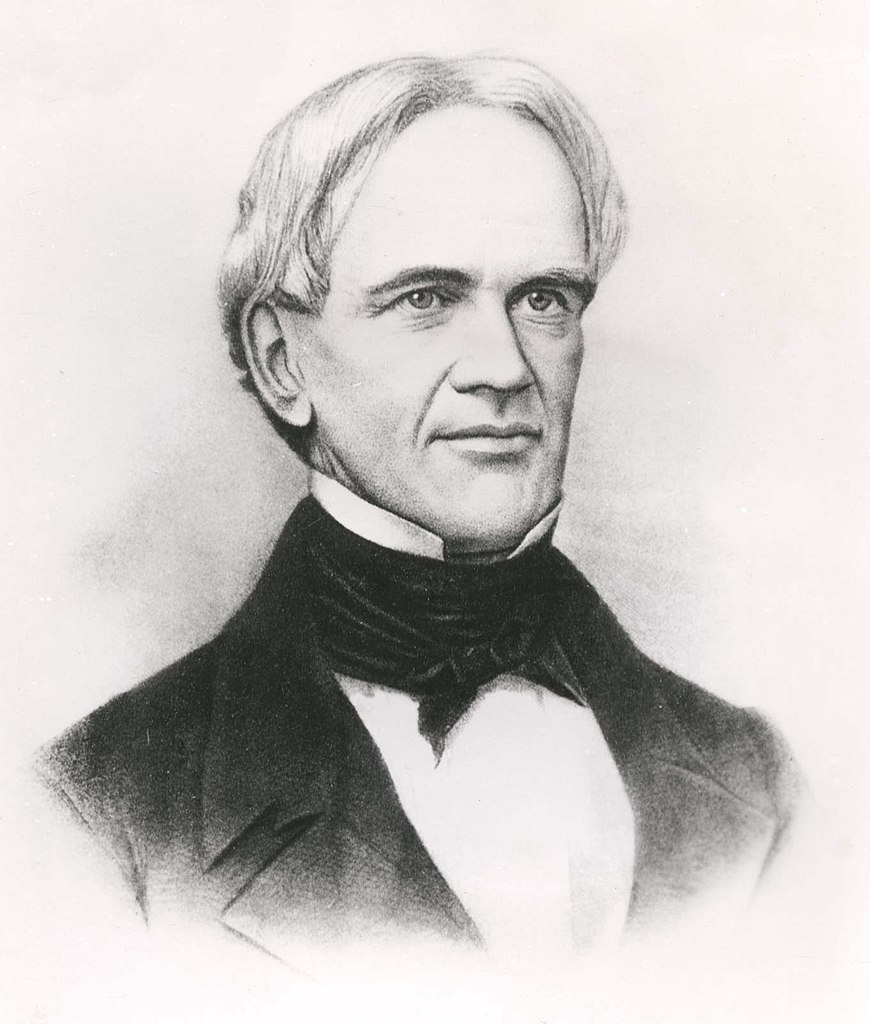

Who Invented Homework? A Big Question Answered with Facts

Crystal Bourque

Delving into the intriguing history of education, one of the most pondered questions arises: Who invented homework?
Love it or hate it, homework is part of student life.
But what’s the purpose of completing these tasks and assignments? And who would create an education system that makes students complete work outside the classroom?
This post contains everything you’ve ever wanted to know about homework. So keep reading! You’ll discover the answer to the big question: who invented homework?
Who Invented Homework?
The myth of roberto nevilis: who is he, the origins of homework, a history of homework in the united states, 5 facts about homework, types of homework.
- What’s the Purpose of Homework?
- Homework Pros
- Homework Cons
When, How, and Why was Homework Invented?

Daniel Jedzura/Shutterstock.com
To ensure we cover the basics (and more), let’s explore when, how, and why was homework invented.
As a bonus, we’ll also cover who invented homework. So get ready because the answer might surprise you!
It’s challenging to pinpoint the exact person responsible for the invention of homework.
For example, Medieval Monks would work on memorization and practice singing. Ancient philosophers would read and develop their teachings outside the classroom. While this might not sound like homework in the traditional form we know today, one could argue that these methods helped to form the basic structure and format.
So let’s turn to recorded history to try and identify who invented homework and when homework was invented.
Pliny the Younger

Credit: laphamsquarterly.org
Mention of homework appears in the writings of Pliny the Younger, meaning we can trace the term ‘homework’ back to ancient Rome. Pliny the Younger (61—112 CE) was an oratory teacher, and often told his students to practice their public speaking outside class.
Pliny believed that the repetition and practice of speech would help students gain confidence in their speaking abilities.
Johann Gottlieb Fichte

Credit: inlibris.com
Before the idea of homework came to the United States, Germany’s newly formed nation-state had been giving students homework for years.
The roots of homework extend to ancient times, but it wasn’t until German Philosopher Johann Gottlieb Fichte (1762—1814) helped to develop the Volksschulen (People’s Schools) that homework became mandatory.
Fichte believed that the state needed to hold power over individuals to create a unified Germany. A way to assert control over people meant that students attending the Volksshulen were required to complete assignments at home on their own time.
As a result, some people credit Fichte for being the inventor of homework.
Horace Mann

Credit: commons.wikimedia.org
The idea of homework spread across Europe throughout the 19th century.
So who created homework in the United States?
The history of education and homework now moves to Horace Mann (1796—1859), an American educational reformer, spent some time in Prussia. There, he learned more about Germany’s Volksshulen, forms of education , and homework practices.
Mann liked what he saw and brought this system back to America. As a result, homework rapidly became a common factor in students’ lives across the country.

Credit: medium.com
If you’ve ever felt curious about who invented homework, a quick online search might direct you to a man named Roberto Nevilis, a teacher in Venice, Italy.
As the story goes, Nevilis invented homework in 1905 (or 1095) to punish students who didn’t demonstrate a good understanding of the lessons taught during class.
This teaching technique supposedly spread to the rest of Europe before reaching North America.
Unfortunately, there’s little truth to this story. If you dig a little deeper, you’ll find that these online sources lack credible sources to back up this myth as fact.
In 1905, the Roman Empire turned its attention to the First Crusade. No one had time to spare on formalizing education, and classrooms didn’t even exist. So how could Nevilis spread the idea of homework when education remained so informal?
And when you jump to 1901, you’ll discover that the government of California passed a law banning homework for children under fifteen. Nevilis couldn’t have invented homework in 1905 if this law had already reached the United States in 1901.

Inside Creative House/Shutterstock.com
When it comes to the origins of homework, looking at the past shows us that there isn’t one person who created homework. Instead, examining the facts shows us that several people helped to bring the idea of homework into Europe and then the United States.
In addition, the idea of homework extends beyond what historians have discovered. After all, the concept of learning the necessary skills human beings need to survive has existed since the dawn of man.
More than 100 years have come and gone since Horace Mann introduced homework to the school system in the United States.
Therefore, it’s not strange to think that the concept of homework has changed, along with our people and culture.
In short, homework hasn’t always been considered acceptable. Let’s dive into the history or background of homework to learn why.
Homework is Banned! (The 1900s)
Important publications of the time, including the Ladies’ Home Journal and The New York Times, published articles on the negative impacts homework had on American children’s health and well-being.
As a result, California banned homework for children under fifteen in 1901. This law, however, changed again about a decade later (1917).
Children Needed at Home (The 1930s)
Formed in 1923, The American Child Health Association (ACHA) aimed to decrease the infant mortality rate and better support the health and development of the American child.
By the 1930s, ACHA deemed homework a form of child labor. Since the government recently passed laws against child labor , it became difficult to justify homework assignments. College students, however, could still receive homework tasks as part of their formal schooling.

Studio Romantic/Shutterstock.com
A Shift in Ideas (The 1940s—1950s)
During the early to mid-1900s, the United States entered the Progressive Era. As a result, the country reformed its public education system to help improve students’ learning.
Homework became a part of everyday life again. However, this time, the reformed curriculum required teachers to make the assignments more personal.
As a result, American students would write essays on summer vacations and winter breaks, participate in ‘show and tell,’ and more.
These types of assignments still exist today!
Homework Today (The 2000s)
The focus of American education shifted again when the US Department of Education was founded in 1979, aiming to uplevel education in the country by, among other things, prohibiting discrimination ensuring equal access, and highlighting important educational issues.
In 2022, the controversial nature of homework in public schools and formal education is once again a hot topic of discussion in many classrooms.
According to one study , more than 60% of college and high school students deal with mental health issues like depression and anxiety due to homework. In addition, the large number of assignments given to students takes away the time students spend on other interests and hobbies. Homework also negatively impacts sleep.
As a result, some schools have implemented a ban or limit on the amount of homework assigned to students.
Test your knowledge and check out these other facts about homework:
- Horace Mann is also known as the ‘father’ of the modern school system and the educational process that we know today (read more about Who Invented School ).
- With a bit of practice, homework can improve oratory and writing skills. Both are important in a student’s life at all stages.
- Homework can replace studying. Completing regular assignments reduces the time needed to prepare for tests.
- Homework is here to stay. It doesn’t look like teachers will stop assigning homework any time soon. However, the type and quantity of homework given seem to be shifting to accommodate the modern student’s needs.
- The optimal length of time students should spend on homework is one to two hours. Students who spent one to two hours on homework per day scored higher test results.
- So, while completing assignments outside of school hours may be beneficial, spending, for example, a day on homework is not ideal.
Explore how the Findmykids app can complement your child’s school routine. With features designed to ensure their safety and provide peace of mind, it’s a valuable tool for parents looking to stay connected with their children throughout the day. Download now and stay informed about your child’s whereabouts during their academic journey.

Ground Picture/Shutterstock.com
The U.S. Department of Education provides teachers with plenty of information and resources to help students with homework.
In general, teachers give students homework that requires them to employ four strategies. The four types of homework types include:
- Practice: To help students master a specific skill, teachers will assign homework that requires them to repeat the particular skill. For example, students must solve a series of math problems.
- Preparation: This type of homework introduces students to the material they will learn in the future. An example of preparatory homework is assigning students a chapter to read before discussing the contents in class the next day.
- Extension: When a teacher wants to get students to apply what they’ve learned but create a challenge, this type of homework is assigned. It helps to boost problem-solving skills. For example, using a textbook to find the answer to a question gets students to problem-solve differently.
- Integration: To solidify the student learning experience , teachers will create a task that requires the use of many different skills. An example of integration is a book report. Completing integration homework assignments helps students learn how to be organized, plan, strategize, and solve problems on their own. Encouraging effective study habits is a key idea behind homework, too.
Ultimately, the type of homework students receive should have a purpose, be focused and clear, and challenge students to problem solve while integrating lessons learned.
What’s the Purpose of Homework?

LightField Studios/Shutterstock.com
Homework aims to ensure individual students understand the information they learn in class. It also helps teachers to assess a student’s progress and identify strengths and weaknesses.
For example, school teachers use different types of homework like book reports, essays, math problems, and more to help students demonstrate their understanding of the lessons learned.
Does Homework Improve the Quality of Education?
Homework is a controversial topic today. Educators, parents, and even students often question whether homework is beneficial in improving the quality of education.
Let’s explore the pros and cons of homework to try and determine whether homework improves the quality of education in schools.
Homework Pros:
- Time Management Skills : Assigning homework with a due date helps students to develop a schedule to ensure they complete tasks on time. Personal responsibility amongst students is thereby promoted.
- More Time to Learn : Students encounter plenty of distractions at school. It’s also challenging for students to grasp the material in an hour or less. Assigning homework provides the student with the opportunity to understand the material.
- Improves Research Skills : Some homework assignments require students to seek out information. Through homework, students learn where to seek out good, reliable sources.
Homework Cons:
- Reduced Physical Activity : Homework requires students to sit at a desk for long periods. Lack of movement decreases the amount of physical activity, often because teachers assign students so much homework that they don’t have time for anything else. Time for students can get almost totally taken up with out-of-school assignments.
- Stuck on an Assignment: A student often gets stuck on an assignment. Whether they can’t find information or the correct solution, students often don’t have help from parents and require further support from a teacher. For underperforming students, especially, this can have a negative impact on their confidence and overall educational experience.
- Increases Stress : One of the results of getting stuck on an assignment is that it increases stress and anxiety. Too much homework hurts a child’s mental health, preventing them from learning and understanding the material.
Some research shows that homework doesn’t provide educational benefits or improve performance, and can lead to a decline in physical activities. These studies counter that the potential effectiveness of homework is undermined by its negative impact on students.
However, research also shows that homework benefits students—provided teachers don’t give them too much. Here’s a video from Duke Today that highlights a study on the very topic.
Homework Today
The question of “Who Invented Homework?” delves into the historical evolution of academic practices, shedding light on its significance in fostering responsibility among students and contributing to academic progress. While supported by education experts, homework’s role as a pivotal aspect of academic life remains a subject of debate, often criticized as a significant source of stress. Nonetheless, when balanced with extracurricular activities and integrated seamlessly into the learning process, homework continues to shape and refine students’ educational journeys.
Maybe one day, students won’t need to submit assignments or complete tasks at home. But until then, many students understand the benefits of completing homework as it helps them further their education and achieve future career goals.
Before you go, here’s one more question: how do you feel about homework? Do you think teachers assign too little or too much? Get involved and start a discussion in the comments!

Elena Kharichkina/Shutterstock.com

Who invented homework and why?
The creation of homework can be traced back to the Ancient Roman Pliny the Younger, a teacher of oratory—he is generally credited as being the father of homework! Pliny the Younger asked his students to practice outside of class to help them build confidence in their speaking skills.
Who invented school homework?
The invention of school homework is often attributed to Roberto Nevilis, an Italian teacher in the early 1900s. He introduced homework as a method to reinforce lessons outside the classroom. However, similar practices date back to ancient times when students were tasked with memorizing texts and practicing skills at home.
Homework has since evolved into a widely used educational tool, emphasizing independent learning and skill mastery, though debates on its effectiveness continue. Teachers today use homework to help students apply classroom knowledge in practical settings.
Who invented homework as a punishment?
There’s a myth that the Italian educator Roberto Nevilis first used homework as a means of punishing his students in the early 20th century—although this has now been widely discredited, and the story of the Italian teacher is regarded as a myth.
Why did homework stop being a punishment?
There are several reasons that homework ceased being a form of punishment. For example, the introduction of child labor laws in the early twentieth century meant that the California education department banned giving homework to children under the age of fifteen for a time. Further, throughout the 1940s and 1950s, there was a growing emphasis on enhancing students’ learning, making homework assignments more personal, and nurturing growth, rather than being used as a form of punishment.
The picture on the front page: Evgeny Atamanenko/Shutterstock.com

It’s impossible to overemphasize the importance of learning alphabet letters for kids. This primary milestone…

Welcome to the exciting whirlwind of Back-to-School Night! If you’re a parent, you likely have…

Every parent wants to see their child happy and successful in their life. However, are…
Subscribe now!
Glad you've joined us🎉🎉.

Debunking the Myth of Roberto Nevilis: Who Really Invented Homework?
- By Emily Summers
- February 18, 2019
For those of us who have attended a formal education setting, you might remember the frustration of getting homework from most of your teachers. Before class ends, your teacher instructs your class to answer a certain page of your book or to write an essay about the topic you had just discussed.
Some of us really didn’t like doing homework. It was very time-consuming and, on top of extra-curricular activities, house chores, and other tasks you needed to do, you had very little time to yourself and your hobbies before having to go to sleep.
If you’ve ever been curious enough to find out who to thank for inventing homework, Google and several websites will tell you that it’s a man named Roberto Nevilis. That he invented homework as a form of punishment for underperforming students and, almost a thousand years later, billions of students are frustrated both at school and at home because of him.
But that, like a lot of things on the internet, simply isn’t true. In fact, Roberto Nevilis doesn’t even exist.
Who Invented Homework? Not Roberto Nevilis.
The nail in the coffin, a brief history on the education system, the father of modern homework, is homework still effective.
Online, there are many articles claiming that Roberto Nevilis was the first educator who came up with giving students homework. But if you look at the websites that claim this, you’ll find that it’s mostly forum websites or obscure educational blogs. No credible website or news source even mentions the name Roberto Nevilis. And for a guy who has affected the educational career of anyone who has had a formal education, you’d think a credible website would mention him at least once. Or some of the less-credible websites would confirm his contribution without saying the word “allegedly” or a vague “scientists believe” or the like.

Nevilis was supposedly a teacher based in Venice, Italy when he invented homework. Some claim that he invented it in 1095, while others claim he invented it in 1905 before it spread to Europe and to the rest of the world. It was said to be a form of punishment for students who underperformed in class. Students who performed well in class were spared from homework.
Either way, this claim is dubious. In 1095, education was still very informal around Europe and an organized education system in the continent didn’t start until 800 years later. In the 1500’s, English nobility were still being taught by private tutors.
Around 1095, the Roman Empire had long fallen and the Pope was still organizing the very first crusade and education was still informal, so it would be impossible for Nevilis to not only hold a class and give out homework, but to also spread out his idea to the rest of Europe when there was still no organized educational system.
And it couldn’t have been 1905, either. In 1901, California passed an act that banned homework for students younger than 15 years old before the law was revoked in 1917. That means Nevilis – assuming he does exists and isn’t the work of some internet trolls – couldn’t have invented it in 1905 in Europe if it already made its way to California and probably the rest of the world four years earlier.
And if that’s not enough evidence, just take a look at all the information you can get on him online. The only websites that mention his name: Quora, WikiAnswers, clickbait articles, and blogs for websites that help you write your homework (though if they can’t do their research properly, you might want to stay away from their services).
There’s no credible website mentioning him anywhere. And the websites that do mention him are very vague in describing his contribution. “Scientists believe” becomes a very sketchy claim when a website doesn’t cite a credible source. And if you try to search “Roberto Nevilis,” only the same handful of websites show up.
The truth is, homework existed dating back to the earliest civilizations and the first forms of education. In feudal times, education was reserved for the wealthy men. Those who weren’t rich had no time to study reading or philosophy and were busy making a living. Wealthy young women were trained in the more womanly arts, though princesses and nobles were expected to know a few things and were tutored as well. While they weren’t given workbooks and links to online quizzes, their tutors had expected them to read literary pieces during their free time.

The earliest evidence of a formal school comes from the Sumerian civilization. They had Edubas, which were houses of clay tablets were scribes practiced how to read and write. Archaeologists found student exercises etched into the tablets. Not much is known if they followed a schedule or were all taught by one teacher like the education system today.
During these times, however, homework did not involve answering questions or writing down essays as we’ve come to know it today. If we look back at history, there were other forms of educational methods that students and teachers at the time would have considered the homework of their time.
While we can’t pin the invention of homework to a certain teacher, we can trace back who was responsible for making homework that way it is to this day: Johann Gottlieb Fichte, a German philosopher known as the founding father of German nationalism.

In 1814, Prussia had a problem stirring nationalism among its citizens. Instead of serving the country after the war, citizens could choose to go back to whatever they were doing without thinking of dedicating their time and sacrifice to the country. There was no sense of pride or nationalism.
And so, Fichte conceived the Volkschule – a mandatory nine-year education similar to primary and lower secondary education provided by the state – and a Realschule – a secondary school available to aristocrats. Those attending the Volkschule were given the homework we know today as a way to demonstrate the state’s power even during personal time.
The system spread across Europe, but not in a totally dominating way. Some countries continued with their own system, which is why countries such as Finland don’t impose homework on their students. However, in 1843, back when the United States still practiced private tutors or informal lessons, Horace Mann reformed public education after travelling to Prussia and saw their education system and adapted it into the American education system. Thus, homework eventually evolved into a global practice.
Homework, therefore, is the result of nationalism and getting students to understand that “me time” actually falls on government time if they want to get their education. Contrary to what many websites would say, it wasn’t invented as a punishment for academically failing students.
However, over 200 years had passed since homework’s evolution into what we know it is today. So, is it still necessary to keep our students burdened with extra assignments? On one hand, it can be a good way to teach students time management skills. We like to think that work stays at work and personal life stays out of work, but as working adults, we know this is not the case. Homework at an early age teaches students to use their time wisely.
And while homework can still be helpful in students’ education, it’s only helpful to a certain extent. When plenty of teachers pile on homework, they’re depriving students of time to focus on their extra-curricular activities and personal life.

For those of us who have graduated with high grades, we’ve learned the hard way that a spotless report card can get our foot on the door, but if we have poor interpersonal skills and lack the skills you can only get outside of academics, you can’t achieve total success. Homework is good, but only to an extent. Then, it just becomes an unnecessary burden on students.
In fact, if you look at Finland and Japan – countries that don’t practice giving out homework – you can see that homework is unnecessary if the educational system favors it. Finland has shorter school days, longer summer breaks, and have an educational system where students aren’t required to start school until the age of seven. However, their students have always ranked high in terms of exams.
It’s because in Finland, a teaching career is at the same league as doctors and lawyers. Compare that to our current education system, where teachers are underappreciated and harried in public schools. Finland’s education system allows students more leeway, showing how it is possible to produce bright students without putting too much pressure on them.
We’ve all been frustrated with homework back when we were studying, but homework is actually more than just a nuisance we all have to face in our educational career. It’s actually an important factor which can shape productivity and the time students have for other factors of their education.
About the Author
Emily summers.

Reasons You Should Learn French Now

10 Careers to Pursue After High School if Youre a People Person

How Summer Camp Fosters Social Skills

6 reasons to read to your child regularly at home

Is the D Important in Pharmacy? Why Pharm.D or RPh Degrees Shouldn’t Matter

How to Email a Professor: Guide on How to Start and End an Email Conversation

Everything You Need to Know About Getting a Post-Secondary Education

Grammar Corner: What’s The Difference Between Analysis vs Analyses?

